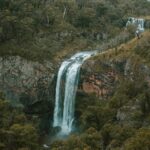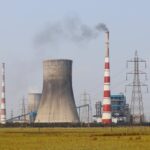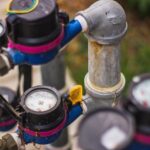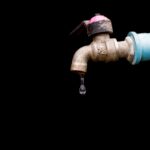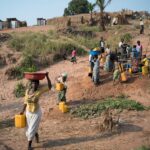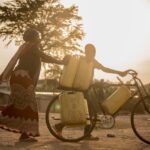The State of Clean Water Access in Nigeria – Where Do We Stand?
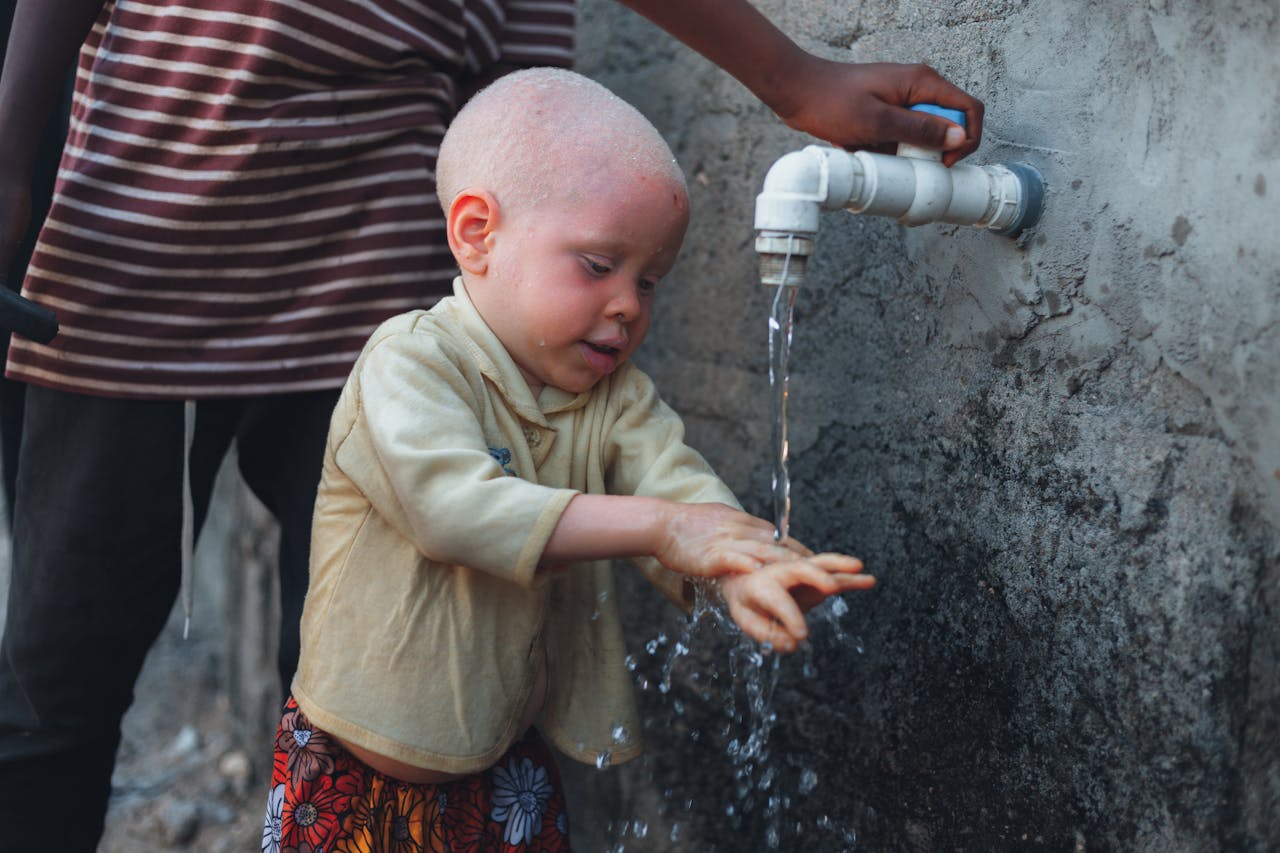
Think about the last time you got a drink of water. For many of us, it’s as easy as turning on a tap. But for millions of Nigerians, it’s not that simple.
Water use is way past solving a thirst problem. That young girl who spends hours every day walking to fetch water, should be seated in a classroom learning like every other child. The farmer whose crops face the threat of withering during dry season, shouldn’t have to worry if there’s proper irrigation, nor should a mother have to worry about her baby drinking contaminated water.
These are the realities for many Nigerians. Clean water touches every part of our lives and the lack of it holds back our health, our education, and our economy. It’s like trying to build a house without a foundation, everything else becomes harder.
But it’s not all doom and gloom. Nigeria has made progress over the years. More people have access to some form of water now than ever before. The question then is, how far have we really come, and how much further do we need to go? Let’s talk about what’s really going on with water in Africa’s biggest country.
The Numbers Game – Where We Stand Today
Let’s talk numbers. As of now, about 70% of Nigerians have what’s called “basic water access.” Sounds good, right? But here’s the catch, “basic access” doesn’t always mean the water is safe or that it’s always available.
Those who have some form of water access might mean, access to a public tap, a borehole, or if you’re lucky, piped water to your home. But even in cities, that water might only flow once a week, or you might have to line up at a communal tap.
According to WaterAid a shocking 3 in 10 people don’t have clean water close to home. For many, this obviously means long walks to fetch water.
The gap between North and South is stark. In some northern states, less than half the population has access to basic water sources. Climate, infrastructure, and historical investment patterns all play a role in this divide.
But there’s hope in these numbers too. Ten years ago, the situation was much worse. We’ve made progress, even if it feels slow. More communities have boreholes now. More homes have rainwater harvesting systems. It’s not enough, but it’s a start.
Here’s another important number: only about 30% of Nigerians have access to safely managed water. That means water which is on premises, available when needed, and free from contamination. It’s a sobering statistic, but it also shows how much potential there is for improvement.
The Big Challenges – Why Clean Water is Still Out of Reach
So why, in 2024, is clean water still a luxury for many Nigerians? The reasons are many, and they’re all tangled up together.
First, let’s talk about pipes, or the lack of them. Nigeria’s water infrastructure is like an old car that’s been patched up too many times. In many areas, the pipes are old, leaky, or simply non-existent. This isn’t just a rural problem, even in cities, water systems often can’t keep up with growing populations. Building new systems and fixing old ones is expensive, and progress is slow.
Then there’s the population boom. Nigeria’s population is growing fast, we’re talking about 200 million people and counting. As we extend water access to more people, the number of people who need it keeps growing too.
Climate change is throwing us another curve ball. Parts of northern Nigeria are getting drier, with Lake Chad shrinking year by year. Meanwhile, coastal areas face more flooding, which can contaminate water sources. These changing patterns make it harder to plan and manage water resources.
Pollution is a huge issue too. In rural areas, open defecation contaminates water sources. In cities and industrial zones, factories often dump untreated waste into rivers. Even where tap water exists, it’s often not safe to drink without boiling or additional treatment.
There’s also the challenge of maintenance. Building a water system is one thing – keeping it running is another. Many communities lack the resources or knowledge to maintain their water infrastructure. A broken pump can mean a return to unsafe water sources for an entire village.
Lastly, there’s the issue of coordination. Water management in Nigeria involves multiple agencies at federal, state, and local levels. Sometimes, it’s not clear who’s responsible for what. This can lead to overlapping efforts in some areas and neglect in others.
These challenges are big, but they’re not insurmountable. Understanding them is the first step towards finding solutions. And solutions are exactly what Nigeria needs to bring clean water to all its people.
What’s the Government Doing About It?
The big bosses in Abuja aren’t just sitting around – they’ve got plans. The goal? Clean water for every Nigerian by 2030. It’s a tall order, but at least they’re aiming high.
Here’s what they’re up to:
First, there’s money. The government is putting more naira into water projects than ever before. They’re fixing old pipes, digging new wells, and trying to build treatment plants. But let’s be real, it’s still not enough. It’s like trying to fill a swimming pool with a bucket. Progress is there, but it’s slow.
They’ve also cooked up some new laws. There’s talk about who’s in charge of water – is it the federal government, the states, or local councils? These new rules are supposed to make things clearer, but as we all know, making rules is one thing. Getting people to follow them? That’s another story.
Nigeria’s also teaming up with the big international players. The World Bank, UNICEF, you name it, they’re all involved. These partnerships bring in extra cash and know-how. It’s like having a foreign coach for our national football team – sometimes an outside perspective helps.
But here’s the thing, all these plans look great on paper. The real test is what happens on the ground. Are the new boreholes actually being dug? Are the treatment plants actually treating water? It’s a mixed bag, with some areas seeing real improvements and others still waiting for those promises to turn into reality.
Where It’s Working
It’s easy to focus on the problems, but let’s shine a light on what’s going right.
Take Enugu State, for instance. Years ago, getting water there was a nightmare. But with the governor’s foresight, smart planning and community involvement, things have turned around. Now, many areas have reliable water supply. It didn’t happen overnight, but it happened.
Or look at Lagos. The mega city is using public-private partnerships to extend water access..
Rural areas have success stories too. In parts of Borno State, solar-powered boreholes are bringing water to communities that never had it before. It’s changing lives – fewer sick kids, more girls in school.
These success stories teach us important lessons. Community involvement matters. Technology can help, but it needs to be the right tech for the right place. And sometimes, small, focused projects can make a big difference.
The Ripple Effect
Water touches every part of life.
Health is the big one. Dirty water means sick people. It’s that simple. In areas with clean water, you see fewer cases of diarrhea, fewer parasites, healthier kids. It’s like a domino effect – healthier kids miss less school, learn more, and have a better shot at a good future.
Education is next. When kids (especially girls) don’t have to spend hours fetching water, they can go to school. More education means more opportunities down the line.
Then there’s the economy. Farmers need water for crops. Small businesses need it to operate. Even big industries can’t function without reliable water. When water’s scarce, everything slows down.
For women and girls, water access can mean the difference between safety and danger. Long walks to fetch water can put them at risk. Closer water sources mean more time for work, education, and family.
How We Compare to Our Neighbors
Nigeria isn’t alone in facing water challenges. Our West African neighbors are in the same boat.
Ghana, for instance, is doing a bit better in some areas. They’ve made big strides in urban water access. But they still struggle in rural areas, just like us.
Senegal has been praised for its innovative approach to water management. They’ve involved private companies in urban areas while the government focuses on rural needs. It’s not perfect, but there are lessons we could learn.
Compared to the regional average, Nigeria is… well, average. We’re not the worst, but we’re far from the best. Given our size and resources, we could be doing much better.
What’s Next? The Road Ahead
So where do we go from here? The future of water in Nigeria isn’t cast in stone. It depends on the choices we make now.
Population growth isn’t slowing down. By 2050, we might have 400 million Nigerians. That’s a lot more people needing water. We need to plan for this growth now, not later.
Climate change is another wild card. We need to get smarter about water management. Harvesting rainwater, protecting natural water sources, and using water-efficient farming methods. These aren’t just good ideas, they’re necessities.
Technology will play a big role. From simple solutions like better hand pumps to high-tech ideas like water quality sensors and efficient treatment plants, innovation can help us scale through some of our current challenges.
But perhaps the biggest change needed is in how we think about water. It’s not an endless resource. It’s not the government’s problem alone. It’s everyone’s responsibility. From the highest offices in Abuja to the smallest village, we all have a part to play in ensuring clean water for all Nigerians.
The path to universal clean water access in Nigeria is long and winding. But with each step – each new borehole, each repaired pipe, each educated community – we get a little closer to that goal. It’s a journey worth making, for the health, prosperity, and future of our nation.
The Way Forward
As we’ve seen, Nigeria’s water situation is complex, challenging, but not without hope. We’re at a crucial turning point, a moment where our actions today will shape the health and prosperity of millions tomorrow.
Take a look at Aqua Maya, a new player in Nigeria’s water landscape.
Aqua Maya isn’t just another NGO. We’re new on the scene, but we’re hitting the ground running with big plans and even bigger heart. We believe clean water can transform lives and it’s a right of every individual.
Nigeria being Africa’s most populous country, can be said to have the most need for clean and safe water. We’ve seen the statistics, and they’re heartbreaking. Too many children are dying from waterborne diseases. Too many communities are held back because they lack this basic necessity.
But we’re not here to dwell on the problems. We’re here to solve them. Our approach is all about working hand-in-hand with local communities. We don’t believe in quick fixes or one-size-fits-all solutions. Instead, our strategy is to sit down with village elders, local officials, and community members to understand their unique needs.
We don’t just drill boreholes and call it a day. We train local technicians, set up sustainable maintenance systems, and educate the community on hygiene practices. It’s about creating lasting change, and not just temporary relief.
It’s safe to say, what sets Aqua Maya apart is our focus on the bigger picture. Clean water isn’t just about health, it’s about unlocking potential. When communities have reliable water access, kids can go to school instead of fetching water. Farmers can irrigate their crops. Small businesses can thrive. We see clean water as the foundation for overall community development.
Our mission is ambitious – To bring safe, sustainable water to 10 million people across West Africa, with Nigeria at the heart of our efforts. But we can’t do it alone. This is where you come in.
Imagine a Nigeria where every child has safe water to drink. Where waterborne diseases are a thing of the past. Where women and girls don’t spend hours fetching water, boys, inclusive in some cases but instead have time for education and entrepreneurship. This isn’t just a dream, it’s a future within our grasp.
But achieving this future requires all of us. It’s not just about government policies or NGO projects. It’s about a national commitment, a shared vision that clean water is not a privilege, but a right for every Nigerian.
Here’s how you can be part of this transformation:
- Spread the word: Talk about water issues in your community. Awareness is the first step to change.
- Get involved locally: Support or start water conservation efforts in your area. Every drop saved counts.
- Partner with Aqua Maya: Whether you’re a business, a community leader, or an individual, there’s a role for you in our projects.
- Demand action: Hold your local and national leaders accountable for water-related promises and policies.
- Innovate: If you have ideas for water solutions, share them. Innovation often comes from unexpected places.
As we stand at this crossroads, let’s choose the path of progress. Let’s make clean water a reality for all Nigerians. It won’t be easy, and it won’t happen overnight. But with each well dug, each community educated, each policy implemented, we move closer to our goal.
The future of Nigeria flows through our water. At Aqua Maya, we’re committed to making that future bright, healthy, and prosperous. Join us in this mission. Together, we can turn the tide and ensure that clean water becomes a reality for every Nigerian, one community at a time.
The journey of a thousand miles begins with a single step. Let that step be today, and let it be yours. Because when it comes to water, every drop of effort counts, and together, we can create a flood of change.
Sources:
- https://www.unicef.org/nigeria/stories/new-survey-reveals-progress-and-gaps-nigerians-access-water-sanitation-and-hygiene-services
- https://www.wateraid.org/ng/about-us/where-we-work
- https://www.wateraid.org/ng/water-and-climate-change
- https://www.dataphyte.com/latest-reports/70-of-nigerians-consume-contaminated-water/
- https://www.worldometers.info/world-population/nigeria-population/
- https://www.sciencedirect.com/science/article/abs/pii/S014019632030094X
- https://nigeria.un.org/en/sdgs/6
- https://thenationonlineng.net/making-enugu-dry-water-taps-run-again/amp/
- https://www.wateraid.org/ng/media/securing-water-for-today-and-tomorrow-in-lagos-africas-largest-megacity
- https://primeprogressng.com/spotlight/solar-power-brings-water-to-thirsty-nigerian-community/
- https://www.arise.tv/nigerias-population-to-surge-by-54-by-2050-global-population-nearing-9-6-billion-report-says/

